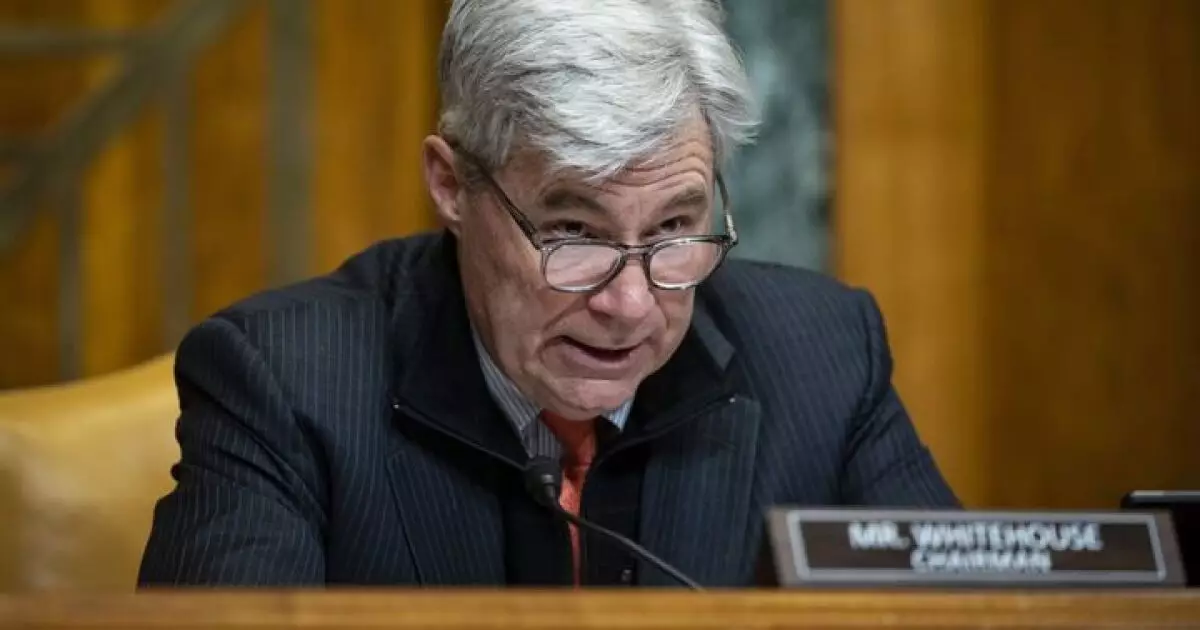Streamlining Infrastructure: Challenges and Opportunities Amid Political Turmoil

The infrastructure landscape in the United States is currently fraught with challenges as political tensions obstruct the flow of vital federal funds to state projects. At the forefront is the bipartisan initiative by the Senate Environment and Public Works Committee, aimed at mitigating the bureaucratic hurdles which significantly delay infrastructure advancements. Amidst this backdrop, a poignant commentary by Senate Ranking Member Sheldon Whitehouse reflects the frustration felt by many: “Democrats cannot agree to any permitting reform unless and until the Trump administration ends its lawless disregard for congressional authority and judicial orders.” This statement highlights the deeply-rooted gridlock not just in policy-making but also in the broader constitutional framework, signifying an urgent need for realignment between executive actions and legislative expectations.
A significant area of concern highlighted during recent hearings is the detrimental impact on clean energy projects, specifically offshore wind farms. The Bipartisan Infrastructure Bill and the Inflation Reduction Act were expected to energize these projects, pushing the U.S. toward a greener future. However, constraints initiated by the previous administration have cast uncertainty over the sector. Brent Booker, president of the Laborers’ International Union of North America, painted a stark picture of the consequences, stating that the administration’s cessation of offshore lease sales has led to a downturn in job opportunities, signaling a painful irony where the pursuit of clean energy stands at odds with economic viability. This situation underscores the importance of sustained governmental support for clean initiatives, where delays can translate into lost jobs and halted economic growth.
The role of the judicial system has also garnered attention as a factor contributing to permitting delays. The committee noted that various parties have leveraged the judicial process creatively, leading to prolonged project timelines and inflated costs. This reliance on legal maneuvers exemplifies an alarming trend where initiatives designed to promote progress are entangled in red tape. Committee Chair Sen. Shelley Moore Capito echoed this sentiment, acknowledging that without decisive congressional action, funding and approvals are ensnared, leaving countless projects in limbo. There lies a shared responsibility between lawmakers and the judicial system to ensure that infrastructure projects are not only conceived but also executed in a timely manner.
Simultaneously, the housing sector faces mounting pressures as Congress contemplates restrictions on private activity bonds crucial for affordable housing development. Despite calls to alleviate local permit restrictions, many community leaders remain concerned about their states’ zoning policies and housing strategies. Carl Harris, chairman of the National Association of Home Builders, emphasized the need for local agencies to evaluate their housing policies critically. Additionally, the suggestion to increase Community Development Block Grants for municipalities reveals a potential pathway for revitalizing the housing market, positioning it as a collaborative effort necessitating both federal guidance and local implementation.
Navigating the complex web of infrastructure, energy, and housing requires a coordinated effort across political and jurisdictional lines. As the Senate Environment and Public Works Committee seeks to cut the red tape that stifles progress, it is clear that bipartisan cooperation is essential to establishing a robust infrastructure system. With the right reforms and a commitment to adhering to constitutional principles, there exists a tangible opportunity for revitalizing the American infrastructure landscape, paving the way for sustainable economic growth and the well-being of its citizens.





